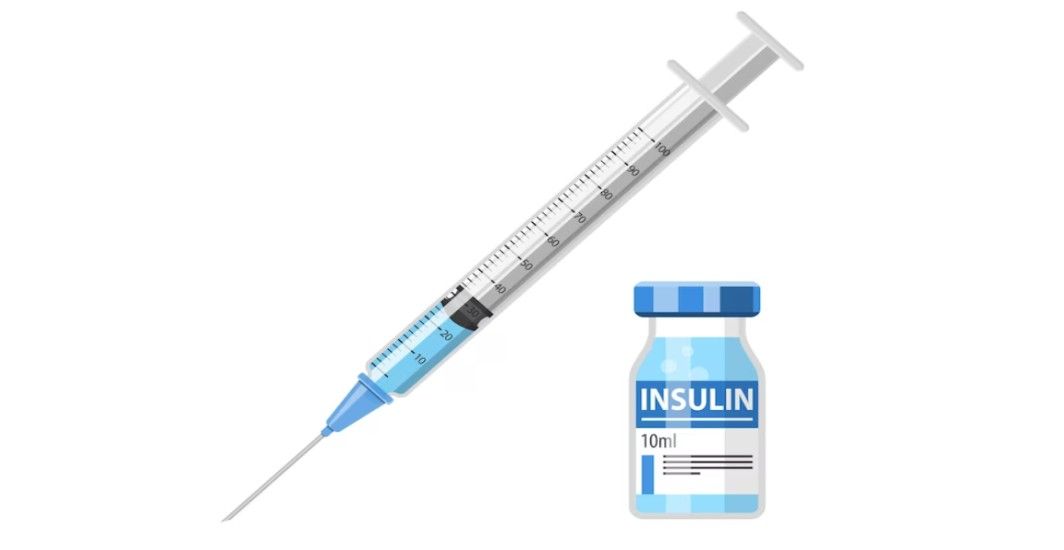Diabetes Management
Can Diabetes Cause Hyperpigmentation?
2 min read
By Apollo 24|7, Published on - 15 July 2024
Share this article
0
0 like
.jpg?tr=q-80)
Diabetes, a chronic condition marked by irregular blood sugar levels, is linked with various skin conditions. Among these, hyperpigmentation, or an unusual darkening of the skin, is associated with diabetes. Let's understand how diabetes and hyperpigmentation are linked:
Hyperpigmentation and Diabetes: The Connection
Certain types of hyperpigmentation can indeed be a result of diabetes. One prominent kind is Acanthosis Nigricans, where high insulin levels lead to an overproduction of melanin. The excess melanin results in dark patches on the skin, especially around the neck, armpits and groin.
Another form of hyperpigmentation related to diabetes is Diabetic Dermopathy. Commonly seen as brown or reddish-brown spots on the shins, this condition is marked by indents that develop over time.
A third form is the development of skin tags. These small, flesh-coloured growths are more common among individuals with diabetes.
Managing Hyperpigmentation: The Role of Diabetes Management
These skin changes can often serve as early signs of undiagnosed diabetes or prediabetes. Addressing the underlying issue of diabetes through proper management can alleviate these hyperpigmented conditions. This involves taking prescribed medication, maintaining a balanced diet, and making significant lifestyle changes.
Further, enrolling in a comprehensive management plan like the Apollo Super 6 programme can prove immensely beneficial. It aids individuals in managing type 2 diabetes through dietary improvements, increased physical activity, and ongoing support.
Skincare for Diabetes-Related Hyperpigmentation
To manage and improve hyperpigmentation, adopt a gentle skincare routine. Use fragrance-free cleansers and moisturisers, preferably those containing ceramides, urea, and antioxidants like bilberry. Wear broad-spectrum sunscreen daily as sun exposure can exacerbate hyperpigmentation.
Keeping blood sugar levels well-controlled is crucial as high glucose levels contribute to many diabetes-related skin issues. If skin conditions persist or worsen, consult a dermatologist as they can provide specialised treatments.
Lastly, while diabetes can lead to hyperpigmentation, effective management of the condition can help reduce these skin changes. Regular monitoring of blood sugar levels, following a suitable skincare routine, and enrolling in a structured guidance programme, like the Apollo Super 6, can be powerful tools in your journey towards holistic health.
Diabetes Management
Consult Top Diabetologists
View AllLeave Comment
Recommended for you

Diabetes Management
Ultra-Rapid-Acting Insulin: A Quick Guide
Ultra-rapid-acting insulin allows individuals with diabetes to quickly and effectively control blood sugar spikes after meals. Understanding how it works and using it appropriately can help you manage your diabetes better. Remember to couple it with regular exercise, a healthy diet, and diligent use of a diabetes management application for optimal results.

Diabetes Management
Measures for Diabetes Management and Healthy Living
Diabetes management involves a combination of healthy eating, regular physical activity, stress management, proper sleep, consistent blood sugar monitoring, and being regular on medication recommended by the doctor. These positive tips can significantly improve one's health and make living with diabetes more manageable.

Diabetes Management
Diabetes and Cardiovascular Health: Reducing Risks
Diabetes raises the risk of cardiovascular diseases but with effective management, one can reduce these risks. Regular health checks, controlling blood glucose, maintaining a healthy diet, staying active, and quitting smoking are key to managing both conditions effectively. Embracing technology in the form of diabetes management tools and applications can further aid in the effective control of diabetes and thus reduce CVD risks
Subscribe
Sign up for our free Health Library Daily Newsletter
Get doctor-approved health tips, news, and more.
Visual Stories

8 Fruits That are Incredibly Healthy for Diabetes
Tap to continue exploring
Recommended for you

Diabetes Management
Ultra-Rapid-Acting Insulin: A Quick Guide
Ultra-rapid-acting insulin allows individuals with diabetes to quickly and effectively control blood sugar spikes after meals. Understanding how it works and using it appropriately can help you manage your diabetes better. Remember to couple it with regular exercise, a healthy diet, and diligent use of a diabetes management application for optimal results.

Diabetes Management
Measures for Diabetes Management and Healthy Living
Diabetes management involves a combination of healthy eating, regular physical activity, stress management, proper sleep, consistent blood sugar monitoring, and being regular on medication recommended by the doctor. These positive tips can significantly improve one's health and make living with diabetes more manageable.

Diabetes Management
Diabetes and Cardiovascular Health: Reducing Risks
Diabetes raises the risk of cardiovascular diseases but with effective management, one can reduce these risks. Regular health checks, controlling blood glucose, maintaining a healthy diet, staying active, and quitting smoking are key to managing both conditions effectively. Embracing technology in the form of diabetes management tools and applications can further aid in the effective control of diabetes and thus reduce CVD risks

